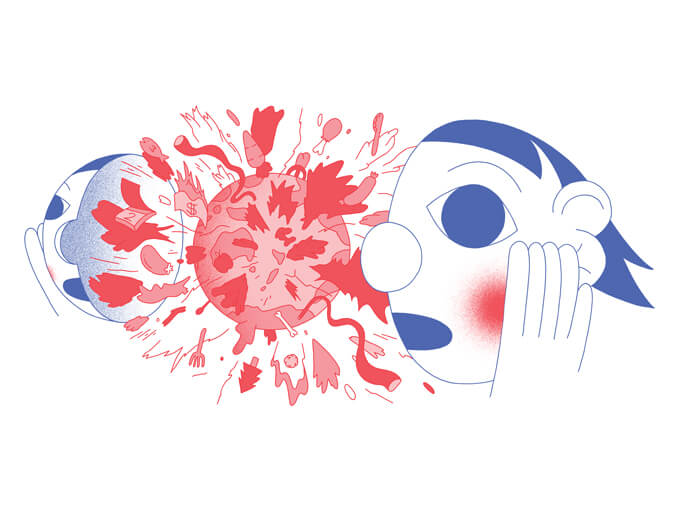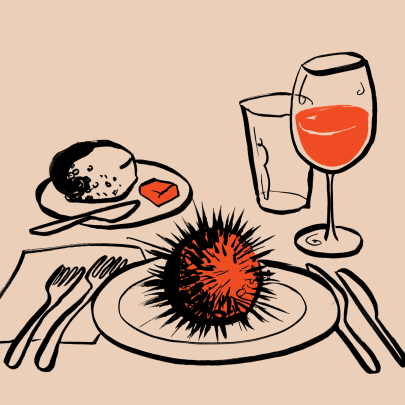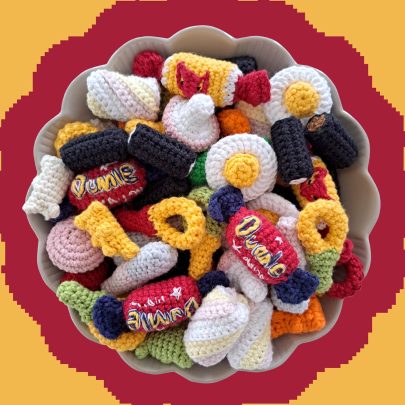Dec 3, 2019 Food
Giving up meat doesn’t have to be a moral or ethical stand. It’s just engaging with our imperilled world.
The day I went vegetarian, I ate meat twice. I’d been out to dinner the night before, a last hurrah at a dining event by Cazador at Coco’s Cantina , and I had a leftover box of pulled-hare pasta. It smelt so gamey it was almost sickening; so obviously a once-alive thing. It was about the worst thing I could have eaten to show how seriously I was taking this lifestyle change. I also had a chicken matzo ball soup from The Fed because it’s my favourite and I wanted it.
Attempting vegetarianism is FOMO, three times a day. So far, I hate it. Every day, I think about how much I hate it, this self-imposed ring-fencing of joy. There’s this place by my office that makes the yummiest pork ramen I’ve ever eaten. It’s smoky and rich, packed with umami and incredible depth of flavour; I used to eat it for lunch once a week. Last week, I ate the vegan ramen instead, with tofu and vege broth. It sucked shit, tasted like nothing. Setting $17 on fire would have been a more enjoyable experience.
Trying to be vegetarian for environmental reasons makes it difficult to intuitively stop eating meat. If you are morally opposed to meat consumption because animals are sentient beings, there’s a direct relationship between your meal and your values. You don’t want to eat a dead animal, so you won’t. When you’re changing your habits in the hopes it might (gestures vaguely) ‘make a difference’, the cause and effect is more diffuse. Yes, cows are bad for the environment, with their burping and their grazing and all that water it takes to make them into spaghetti bolognese, but surely this one cow would be fine for me to eat? Or, to flip it, surely not eating this one cow won’t save the seas from rising?
The rising seas and all their accompanying horrors are never too far from my mind. Flying to Wellington for my cousin’s baby shower a few weeks ago, I felt immensely guilty about the emissions I was helping pump into the air to further warm the planet once said baby was born. I read an article this year called “A World Without Clouds”. It was about how if carbon dioxide (CO2) in the atmosphere keeps rising, the concentration could become high enough that clouds would disappear. After losing the cover clouds provide from the sun, temperatures on Earth would in turn skyrocket by as much as 8°C, way beyond what’s survivable for humans. I felt anxious and sick about that for a good few hours, and then I saw someone else point out in a thread on Twitter that if things progressed to the no-cloud point, it wouldn’t really matter because the preceding conditions would have caused complete social collapse already.
READ MORE: I’ll miss clouds when the climate apocalypse hits
My flatmate and I recently tried to tally up what attributes we’d bring to a post-apocalyptic commune. The list was distressingly short (note to self: learn how to change a tyre, you’re nearly 30). Realising you have no control over how any of this is going to pan out makes it tempting to sink into either inertia or petulance. Why should I have to give up my life’s pleasures when I’m not even one of the 100 companies contributing 70% of the world’s emissions? We’re constantly being told we must “do something”, but what any regular person could do that would ever be enough is unclear.
I have spent a lot of my adulthood disdaining the idea that we can make a better and just world by consuming things in the correct way. I’m especially suspicious of the fact that being an “ethical” consumer always seems to involve spending more money, creating a false dichotomy which decrees “unethical” those whose incomes limit their choices because they don’t earn enough to buy organic. That’s why it’s not particularly helpful to frame choosing not to eat meat as a moral or ethical choice. Rather, it is a necessary change which we will eventually be forced to make if we do not choose to willingly.
Because, by all accounts, the environment cannot sustain the global population’s enormous demand for meat. The growing expectation, both in the West and in most developing countries, that it can and should be eaten at least every day if not at every meal has created a ruthless agriculture industry currently pushing the planet beyond its capacity to provide. Cattle farming appears to have the biggest impact on both land and water use.
Raising chickens and pigs is less burdensome (in part because the industry has figured out extremely cruel ways to maximise their growth using fewer resources), but all animal agriculture creates higher emissions than growing vegetables, not to mention the effect it has on soil quality, air pollution, water pollution and so on. Fishing creates lower emissions, but too much fishing is helping destroy the ocean, and the ocean’s health is vital in the fight against climate change.
READ MORE: 10 things you DON’T need to worry about thanks to the 2050 climate apocalypse
Huge swathes of carbon-absorbing forests have been felled globally to graze cattle to make meat and dairy products, which in turn increases how fast and far fires spread in places like the Amazon rainforest, further decreasing the number of trees, and on it goes, in one of climate change’s numerous terrible feedback loops. Cows’ burps are full of methane, an incredibly potent greenhouse gas which is more immediately damaging to the atmosphere than CO2 (though it does not linger for nearly as long). While there are different ways livestock can be farmed that are not only less harmful but in some cases actually good for the environment, those methods can be implemented only by farming a significantly smaller number of animals worldwide, meaning a swift and drastic reduction in demand for meat is needed.
Meat and dairy make up less than a fifth of our calories and just over a third of our protein but producing them uses 83% of farmland and causes more than half of agriculture’s greenhouse-gas emissions, according to one widely publicised report that concluded in clear terms that we must cut both from our diets if we want to save the planet. A leaked copy of the latest Intergovernmental Panel on Climate Change (IPCC) report drew similar conclusions.
But you probably know all that. And my repeating it now isn’t going to create some kind of ‘aha’ moment when all of a sudden the cold hard facts outweigh the emotional and practical pleasures of eating animals (and yes, our attachment to meat-eating is emotional. Ever read the comments under an article about a vegan protest?). As American critic Charlotte Shane writes in her review of Jonathan Safran Foer’s book We Are the Weather: Saving the Planet Begins at Breakfast, “trying to use information or threats to eliminate food habits is like trying to dam a river with a sieve”. What makes changing your eating habits so hard is also what makes it different from switching to energy-efficient light bulbs or signing a petition — you have to do it every day, every time you make a choice about eating. “The opportunities to put your fork where your mouth is will never stop coming” (Shane again).
In his 2019 book On Eating Meat, Australian food writer and small farmer Matthew Evans adopts a defensive tone. There are chapters with titles such as “Eat dairy? You’d better eat veal, too”, and long treatises about how meat, and beef in particular, isn’t any worse for the planet than golf courses, or palm oil, or wine, or chocolate. I would counter that the uniquely enormous scale of the animal agriculture industry is what sets it apart from those comparisons, although he’s right about the veal thing. More importantly, though, arguing for purity misses the point: of course there’s no perfect diet. I recognise that there’ll be no measurable one-to-one impact from my choices: if I turn down a hamburger, global temperatures will keep rising; a little dial won’t drop proportionally away from “catastrophe” on some imagined dashboard. I won’t be able to give up dairy at the same time as giving up meat without seriously increasing the likelihood of abandoning the entire endeavour altogether, a worse outcome than a bit of dietary hypocrisy. As “Zero-Waste Chef” Anne-Marie Bonneau says, we don’t need a handful of people doing things perfectly, we need millions of people trying imperfectly.
In the process of implementing these new dietary changes, what I was trying to achieve subtly shifted. Instead of trying to “optimise” my diet for the planet like some kind of environmental life hacker, I decided to instead see the change as a commitment to engage with what’s happening around me. The incredible abundance I’ve known since birth will end at some point — either in my lifetime or in the lifetimes of the children I hope to have. I can either be blindsided by that, or I can habituate myself to the reality that, actually, I don’t deserve to eat or drink anything I want whenever I want it. Vegetarianism feels like addressing the climate crisis on my own terms. It’s not empowering, exactly, but it feels better than defensively refusing to change while the world warms around me.
This piece originally appeared in the November-December 2019 issue of Metro magazine, with the headline “Gustation rebellion”.






